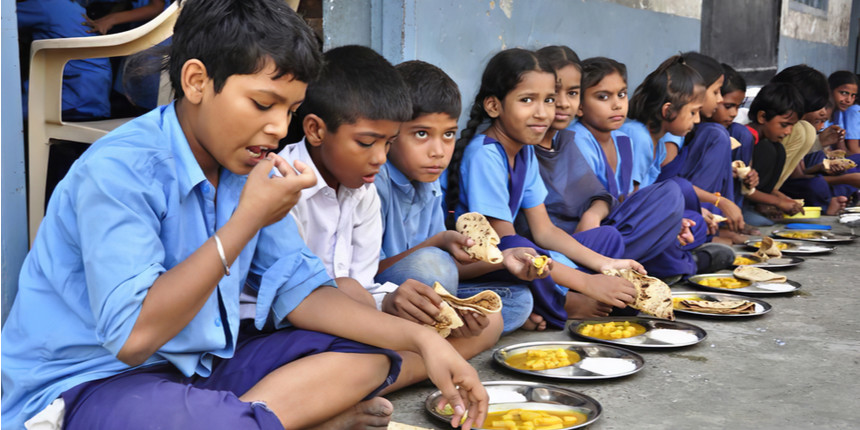Meenakshi Mehra
Santosh Devi, a mid-day meal cook from Kathua, Jammu and Kashmir, arrives her school by 10 am every morning, along with the rest of the staff. Her first task is to clean the kitchen and do the utensils before starting the cooking. Besides her kitchen duties, she is also involved in other tasks necessary for the smooth operation of the school. Although her main responsibility is to provide nutritious food for the school children, she sadly reveals that her own children often go without enough to eat because she does not receive her wages on time.
“I have only received 3500 rupees in the last two years. Unfortunately, I have no idea when the remaining amount will be paid. My monthly salary is fixed at 1000 rupees, but it is never paid on time. This amount is not sufficient to make ends meet, so I strongly urge the authorities to pay our salaries on time.” She added, “If possible, the authorities should give serious consideration increasing our salary.”
The Mid-Day Meal Scheme is a well-known program currently being run by the Indian government. It was launched on August 15, 1995. Initially, the scheme was implemented in 3,408 developed blocks of the country. Later, in the year 1997-98, it was extended to cover every block in the country. The primary objective of the Mid-Day Meal Scheme is to provide nutritious meals to children from economically disadvantaged families who come to school without having eaten anything due to a lack of food at home.
The scheme has proven to be a great blessing for underprivileged children, as it has significantly increased their participation in schools. Not only has the enrolment number risen, but there has also been a positive change in the attendance of children. However, the women appointed to cook Mid-Day Meals in schools are struggling to live a life of dignity, as they do not receive a decent salary to support their families.
Asha Devi, another Mid-Day meal cook at a middle school in Kathua, expressed her distress over the meagre payment she receives, which is only 10,000 rupees per year and is often delayed. There have been instances where she received only two thousand rupees in the second or third month. “Despite working tirelessly from morning till evening, it seems impossible to see an increase in wages. This salary is inadequate to support our family. The government should revise and increase our wages under the Minimum Wages Act,” Asha Lamented.
Last year, mid-day meal cooks in government schools in Kathua organized a protest march to bring the government’s attention to their plight. Many of these meal providers complained about the schools not making full payments, even though the government allocates one thousand rupees. In some cases, they were only paid 400 or 600 rupees.
“We go to school in the morning and return home only after school hours. Even then, we don’t receive our wages on time. While the children of the food providers go hungry, other children get their meals. We are paid only 33 rupees per day. Isn’t that an insult to our service?” Asha lamented.
A few months ago, in the same series of events, a large protest march was organized in Udhampur by the Mid-Day Meal Union. This march included the participation of all government schools in the district. During the demonstration, they engaged with elected representatives to bring attention to their concerns and advocated for a daily payment of 300 to 350 rupees in accordance with the Minimum Wages Act.
However, no solution to their problems seems to be in sight because the government has presented a budget in which there has been a 9.37% reduction in the budget for the Mid-Day Meal scheme. For the year 2023-24, 11,600 crore rupees have been allocated for this scheme, compared to 12,800 crore rupees in 2022-23. Nevertheless, many state governments have taken positive steps by assuring or slightly increasing the salary of mid-day meal cooks. Perhaps, it’s crucial for the Jammu and Kashmir administration as well to seriously consider raising wages for women working in schools. By doing so, these women can not only nourish the children of others but also ensure that their own children are protected from malnutrition.
Trending Now
E-Paper


